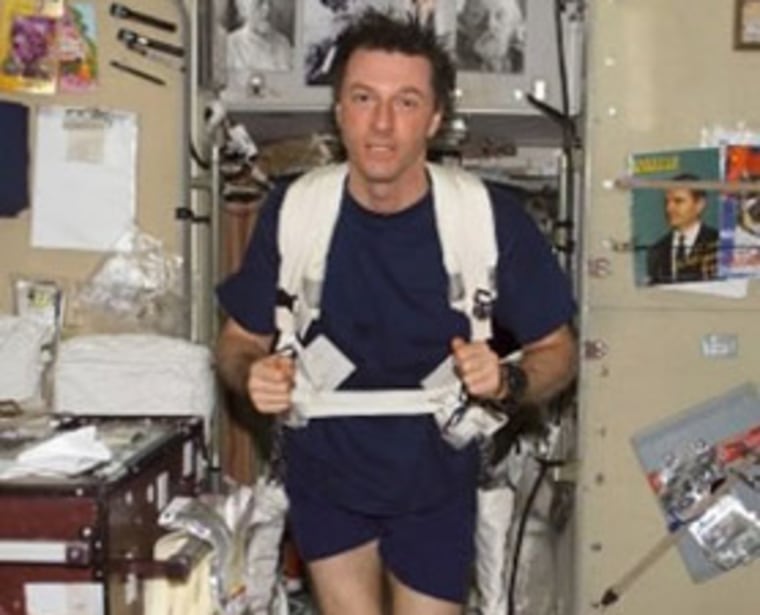Human stem cells grown in a rotating vessel to simulate microgravity are vastly different from those allowed to develop under normal conditions, a new study shows.
The research raises questions about the viability of humans traveling in space without gravity for long periods of time.
Australian scientists used a NASA-developed bioreactor to grow cells from a human embryonic stem cell line. These types of cells can develop into any of the body's three primary layers -- ectoderm, endoderm and mesoderm, which in turn form more than the 220 types of cells found in humans.
The team discovered that 64 percent of the proteins found in the stem cells grown in simulated microgravity were not in control samples. In particular, the bioreactor cells contained several proteins involved in the breakdown of bone and in the regulation of calcium, neither type of which were found in stem cells grown in regular, Earth gravity.
"To the best of our knowledge, this is the first study conducted that has investigated the effect of (simulated microgravity conditions) on an embryonic stem cell line and demonstrated a significant alteration in human cell function as a result of growth in microgravity conditions," lead scientist Elizabeth Blaber, with the Australian Center for Astrobiology, wrote in a paper presented at a key astrobiology conference in Houston last month.
NASA flight surgeons estimate astronauts lose about 1 percent of their bone mineral density every month they are in space. In addition to a vigorous daily exercise in orbit, astronauts are participating in a study to see if taking bone-building drugs known as bisphosphonates can stave off the deterioration.
Other well-known impacts of microgravity on the human body include muscle loss and changes in the cardiovascular and immune system.
"The researchers tell us they feel there is some kind of gene switching at the cellular level that is contributing to the conditions we see," NASA flight surgeon Mike Duncan told Discovery News.
NASA was not involved in the human embryonic stem cell research, but has flown other types of stem cells on the International Space Station, including one that looked at how microgravity impacted development and regeneration of mouse stem cells.
Research using human stem cells is "critical to both space science and cell biology," Blaber and colleagues wrote, pointing out that the findings have implications not only for future space travel but also for helping solve ground-based medical problems.
"These preliminary findings point to potential detrimental effects to the health of astronauts and therefore may also have detrimental effects on the success of a mission," the study said.
